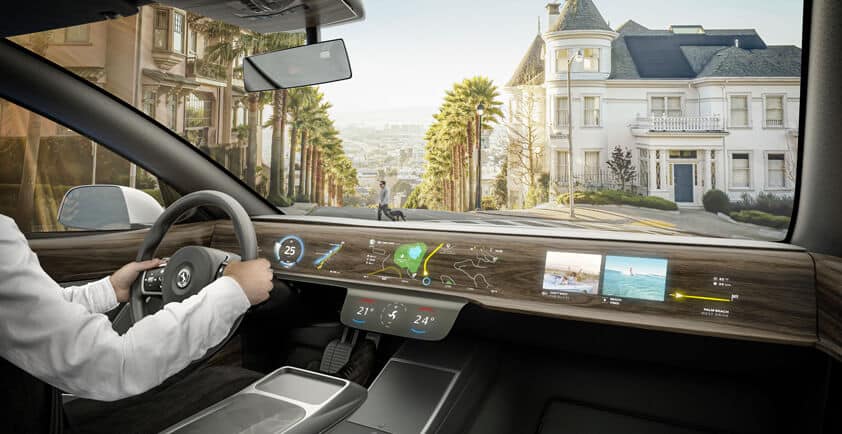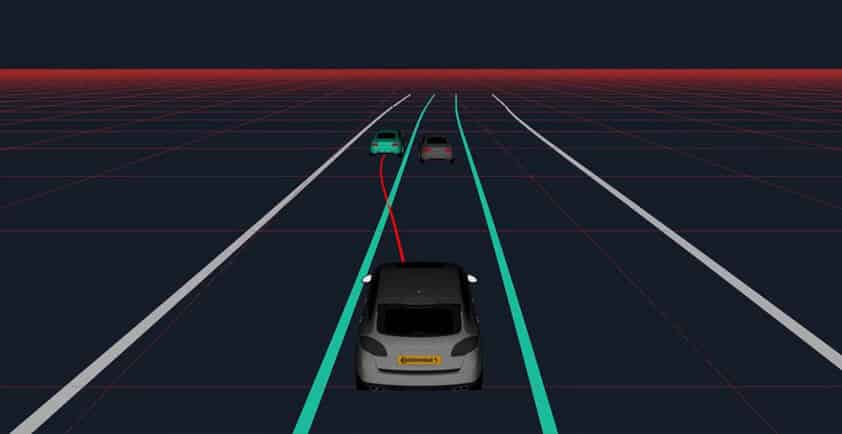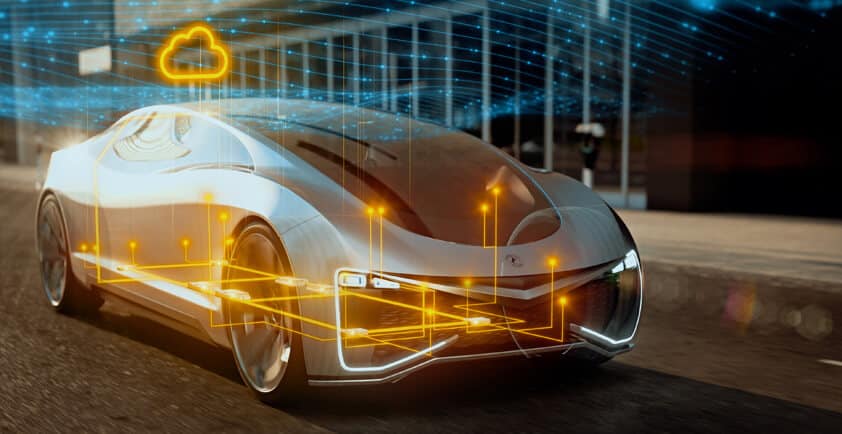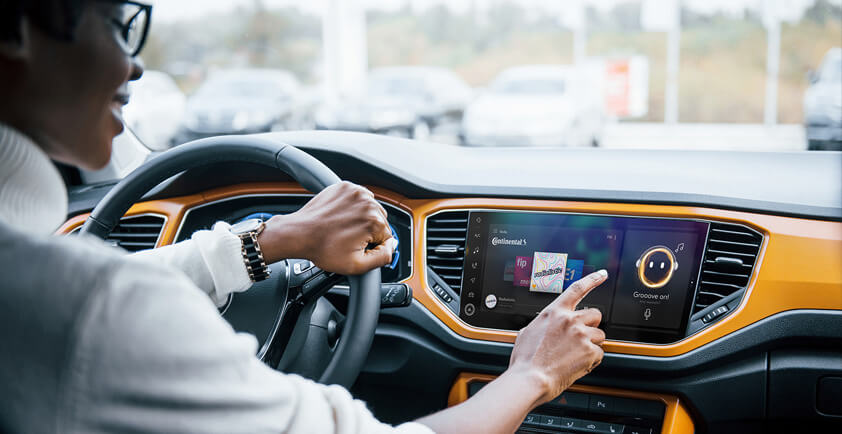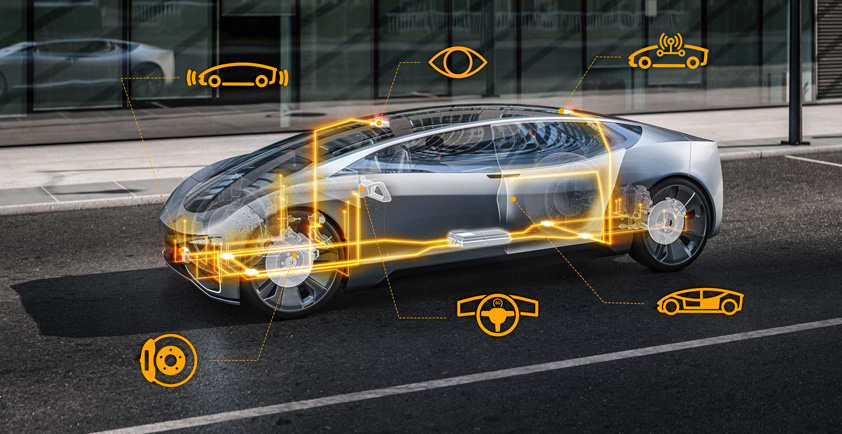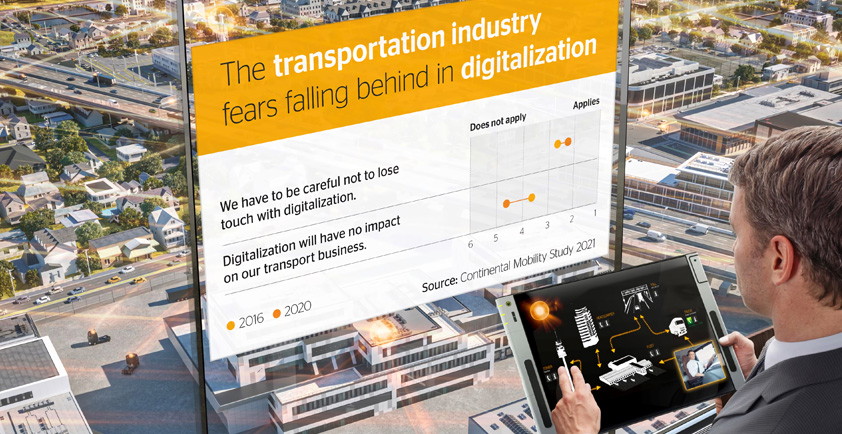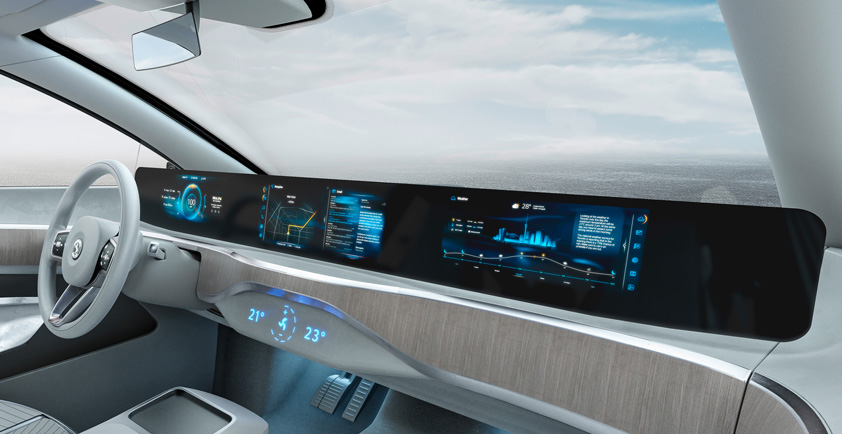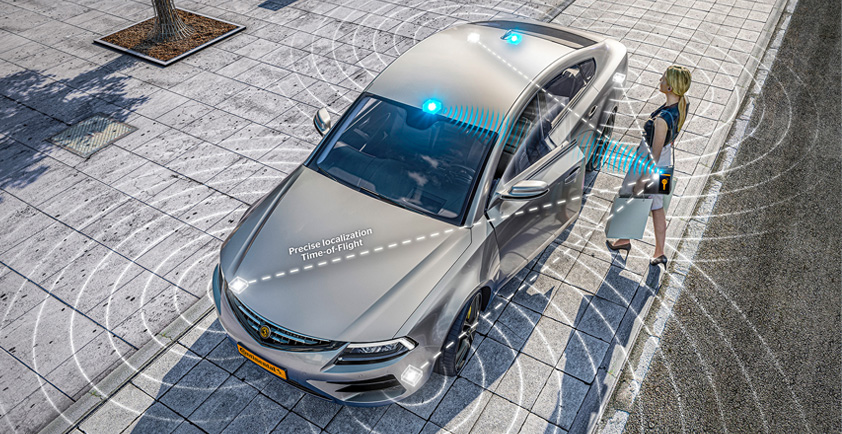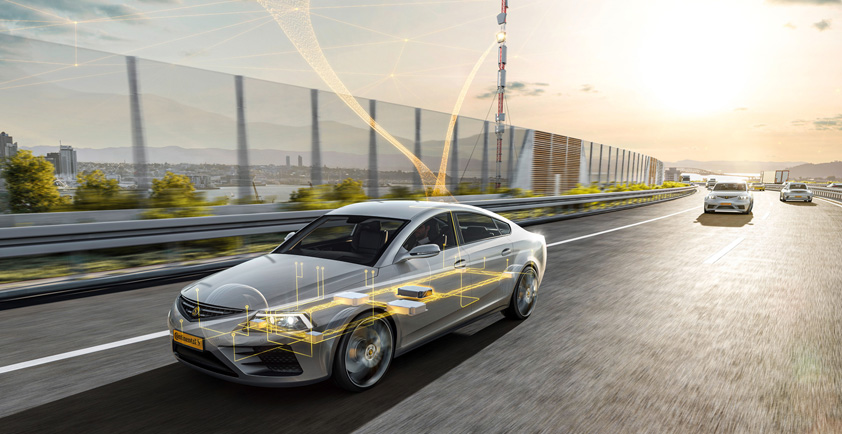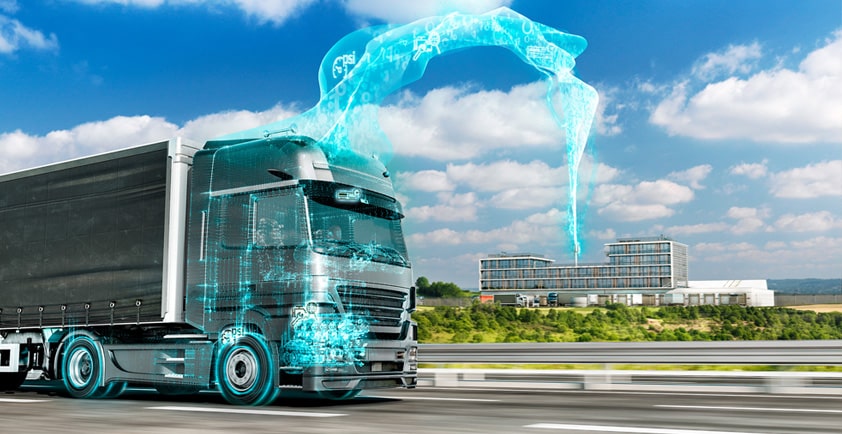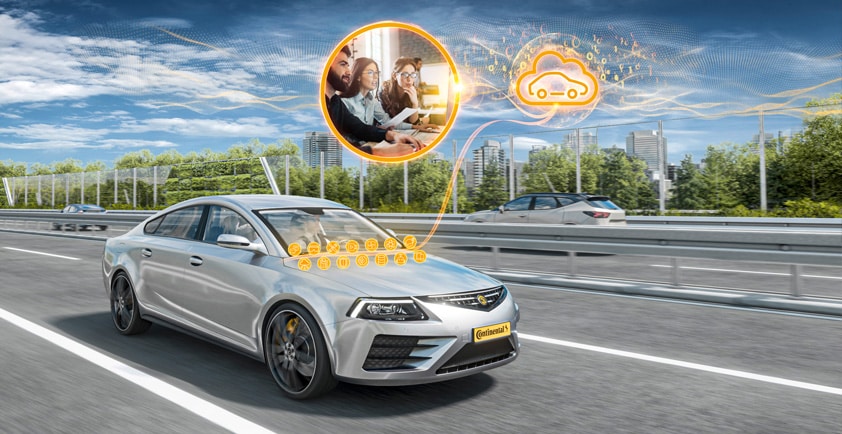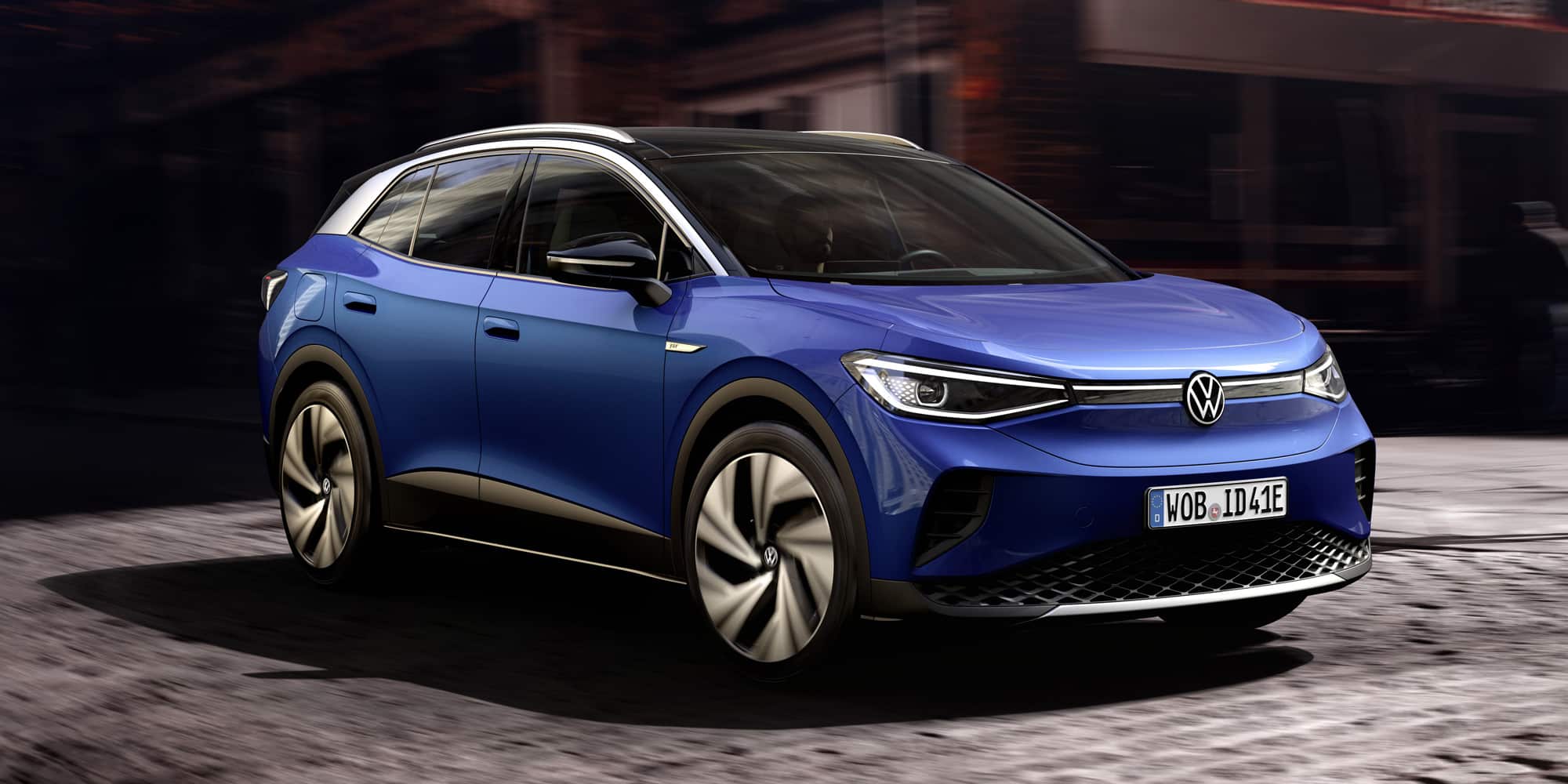
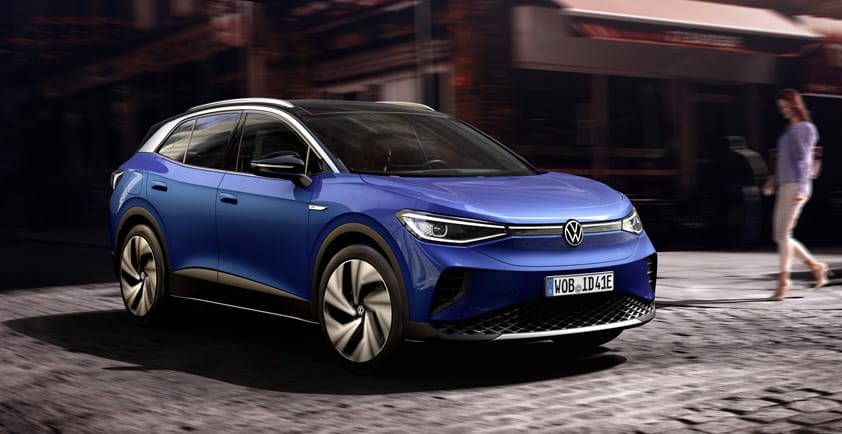
THE VOLKSWAGEN ID.4 – SUSTAINABLE MOBILITY WITH TECHNOLOGY FROM CONTINENTAL
>> Technology from Continental can be found in almost all systems and functions of the Volkswagen ID.4, the winner of the 2021 World Car of the Year Award
>> In addition to innovative drivetrain concepts, emission-free mobility above all needs new forms of connectivity that network vehicles with their surroundings and tailor-made components
>> Dr Ariane Reinhart, member of Continental Executive Board responsible for sustainability and human relations: “We make emission-free mobility absolutely sustainable.”
>> Continental is realizing one of the most comprehensive sustainability roadmaps in the automotive supply segment
>> In the mid-term, Continental will multiply its 2020 sales of more than €800 million from emission-free mobility
>> Starting in 2022, Continental will make its global business for emission-free cars, buses, trains and other vehicles carbon-neutral
Hanover. Continental supplies essential technologies for the ID.4. Almost all systems and functions of the new Volkswagen ID.4, the winner of this year’s World Car of the Year Award, contain ideas, systems and solutions from Continental – from software and central computer architecture to the brakes and sophisticated thermal management, for example for cooling the batteries. As was the case with the ID.3, the E-SUV, the first models of which were delivered to customers at the end of March this year, marks a decisive step forward for Continental in an era when “e” in e-mobility stands not only for “electro” but for “emission-free” as well.
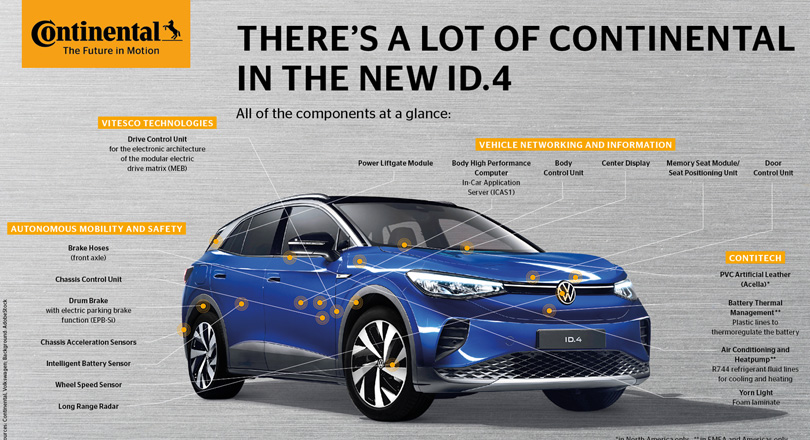
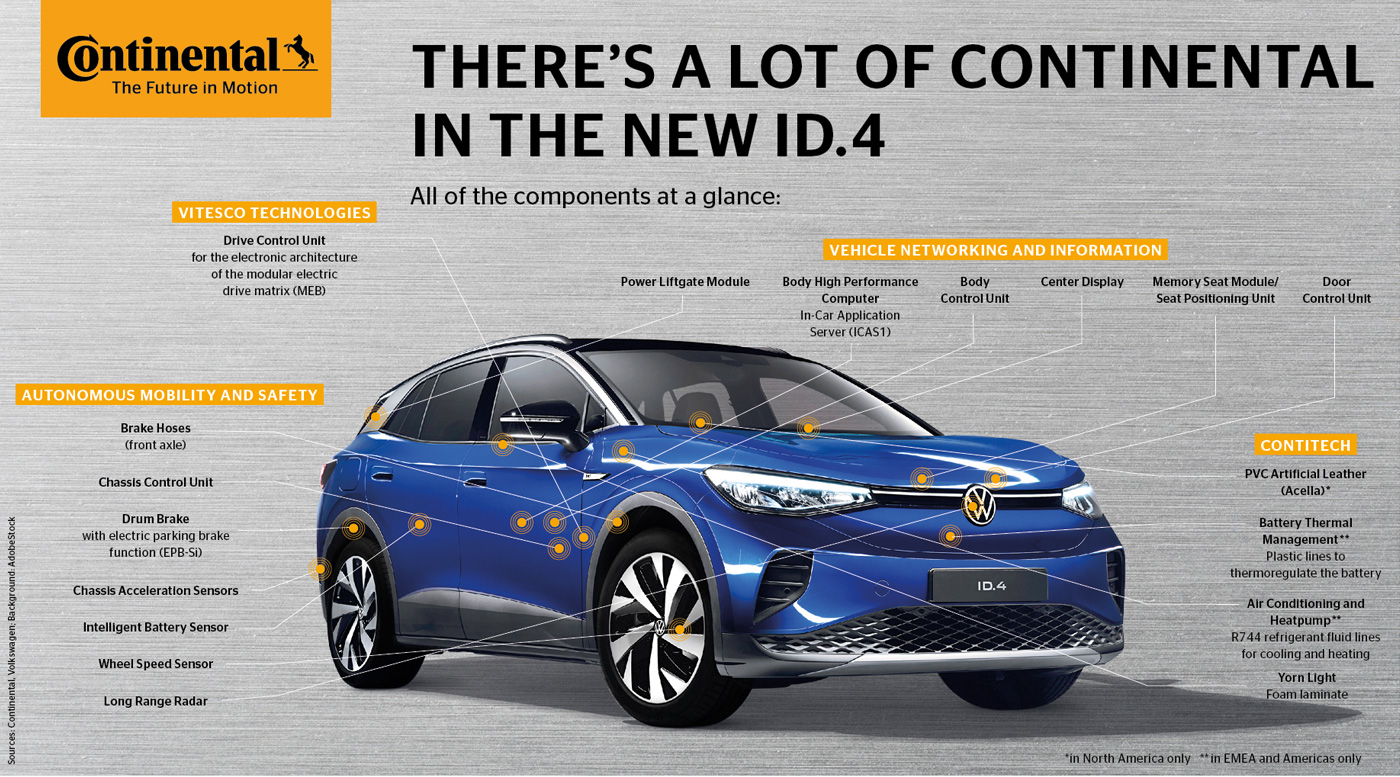
Emission-free vehicles are the future of mobility. Their potential goes far beyond innovative drivetrain concepts. Mobility with sustainable carbon-neutrality is only possible with comprehensive connectivity and safety. An essential role in this is played by groundbreaking technologies from Continental, as is impressively demonstrated by our contributions to the ID.4,” said Dr Ariane Reinhart, member of the Executive Board responsible for sustainability and human relations.
A swift response to the fundamental transformation in mobility markets
“Continental is very well equipped for this fundamental transformation in the industry. With our system solutions and products, we are already ideally prepared for the special requirements of emission-free vehicles and have no need to reinvent everything,” according to Reinhart.


Dr. Ariane Reinhart, Executive Board member for Human Relations and Sustainability at Continental
For example, Continental is a global technology leader in areas such as thermal management, state-of-the art tires or connectivity solutions – also for e-mobility. In the past fiscal year, Continental generated sales of more than €800 million with emission-free mobility – from bicycle tires and air suspension systems for trains and trams, thermal management in electric vehicles to tires or high-performance computers in electric vehicles like the ID.4. Reinhart’s prediction: “The sales generated will multiply in the mid-term. This is also why it is so important to ensure that emission-free mobility is absolutely sustainable from the start.”
Continental is implementing a comprehensive sustainability roadmap
“For Continental, future business is sustainable business,” said Reinhart. The technology company has decided to implement one of the most comprehensive sustainability roadmaps in the automotive supply segment and is paving the way for a new, global industry benchmark.
A key component of the roadmap focuses on emission-free vehicles: Starting in 2022, Continental will make its global business for emission-free cars, buses, trains and other vehicles carbon-neutral. The program includes not only Continental’s own production, but also consciously concentrates on preliminary stages and end-of-life recycling of the products. For emission-free vehicles like the ID.4, Continental will already be achieving its carbon-neutrality target in the course of the coming year. According to current forecasts, the program will neutralize 500,000 to 1,000,000 metric tons of CO2 with what are referred to as negative emissions by 2022 – for example by reforestation. In this way, Continental helps the industry to realize fully carbon-neutral emission-free mobility and establishes a core prerequisite that enables automobile manufacturers to achieve their carbon neutrality targets.
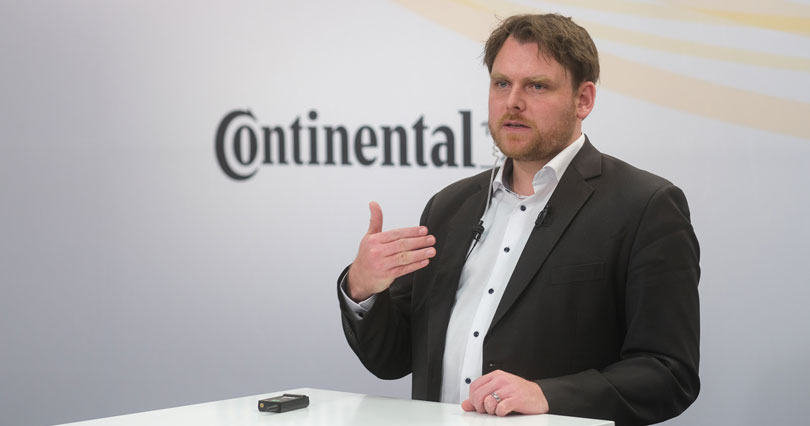
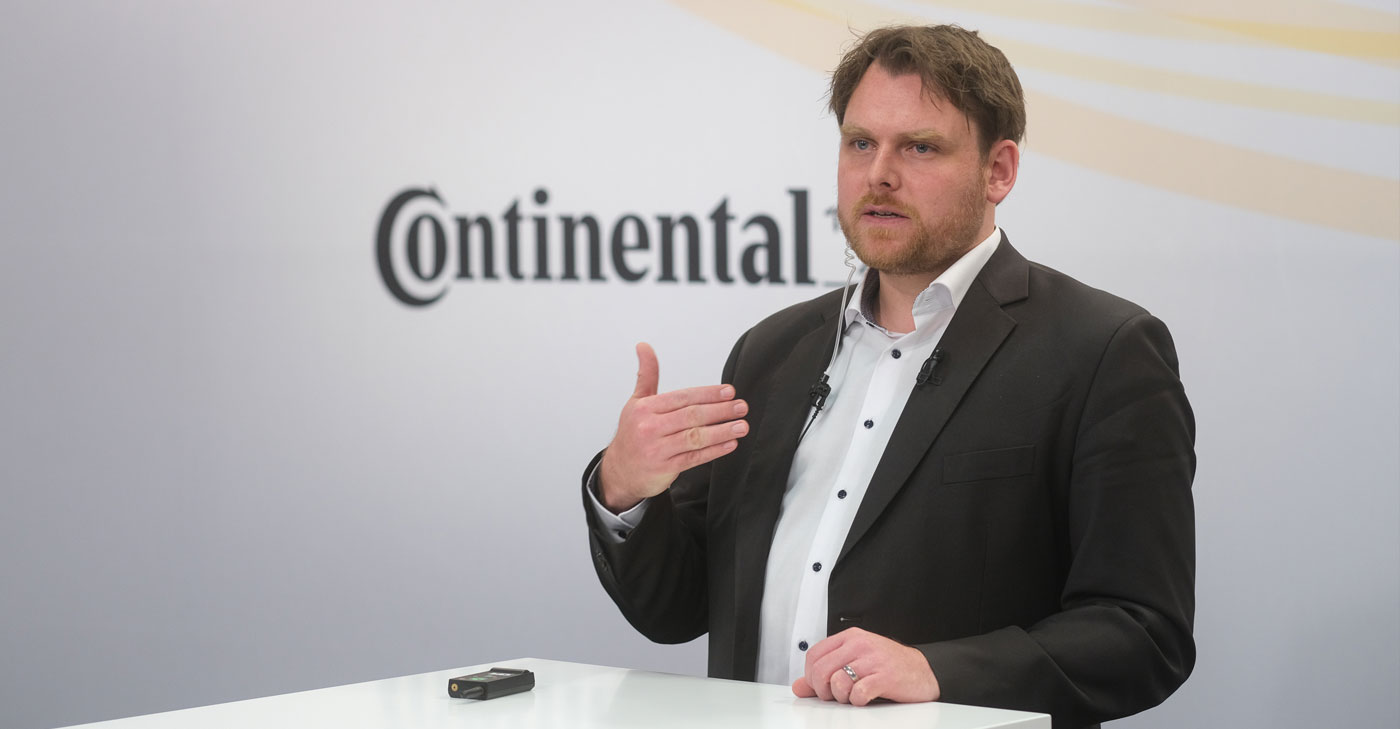
Dr. Steffen Schwartz-Höfler, head of Sustainability at Continental:
With the “Carbon-Neutral for Emission-Free Vehicles” program, Continental underpins its strong position in the growth market of emission-free mobility. In this, the initiative for carbon-neutral vehicles is only one of the first phases of Continental’s comprehensive overall roadmap for a sustainable economy with the objectives of 100 percent carbon neutrality, 100 percent emission-free mobility and industries, a 100 percent circular economy and a 100 percent responsible value creation chain by the end of 2050 at the latest. “To achieve the Paris climate goals, two things are necessary: a complete shift to emission-free mobility and a fully carbon-neutral business,” explained Dr Steffen Schwartz-Höfler, head of Sustainability at Continental.
Annual progress is documented clearly in annual reports and sustainability reports. Since 2020, Continental procures 100 percent of its electricity from renewable sources at production sites around the world and has established sustainability as an element of the long-term remuneration of its executives.
